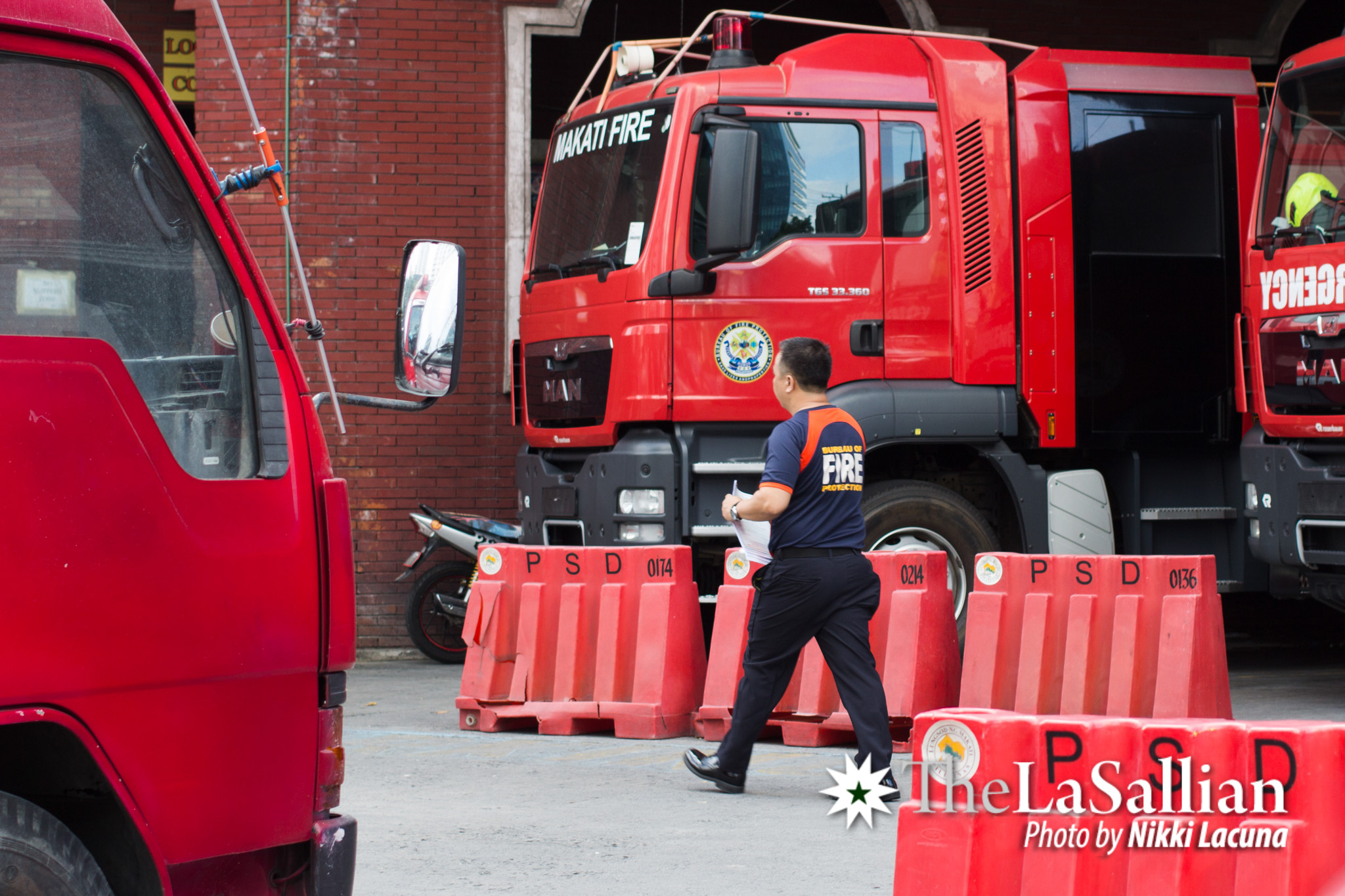In scorching fire and searing heat, panic kicks in. You see figures clad in yellow rush in a burning house to save lives. Whether it be through a screen or in real life, the danger of fire cannot be underestimated. But there are those who risk their lives with only the thought of saving others to push them forward.
Not all heroes wear capes, modern day heroes often wear uniforms, and firefighters wear theirs proudly. Headed by the Bureau of Fire Protection (BFP), firefighters risk life and limb to save others. But not all firefighters work full-time. Among their ranks are volunteer firefighters, who work unpaid, only wishing to serve and keep others safe.

Finding their spark
Actively choosing to put yourself in harm’s way without pay may seem illogical to most, but to volunteer firemen like Jerwin Guan, Jeffrey Alitagtag, and Enrico Ryan Tan, joining the fire brigade made perfect sense.
“I started in 1996,” Jerwin recounts, “I was a member of a different brigade [back then]. I joined because we experienced a fire dito sa restaurant.” He credits the volunteer members of the fire brigade who were on the scene that day for having inspired him. The restaurant was not left unscathed, but thanks to the men and women who chose to help, the fire did not spread, and Jerwin’s family was not left with nothing but ashes to their name. Jeffrey shared a similar experience, having been spared from a potential house fire, too. “Blessing na hindi kami nasunugan,” he recounts, adding that the near-miss experience left him wanting to offer up any services he could in terms of fire safety.
(It was a blessing that our house didn’t burn down.)
It seems that, in the face of adversity, people tend to rise up against the dangers that threatened them in the past in the hopes that no one else has to suffer the way they did. For Ryan, however, the drive to run into burning infernos for the sake of others was always in his blood. “My uncle and my dad used to be volunteer firemen also. They even started their own group before,” he shares.
Since he’s carrying on the family tradition, Ryan wears his title of fire chief with pride. Even though the organization he volunteers for is auxiliary to the BFP, Ryan shares that they also “undergo what regular firemen trained for”, adding that he himself has trained for several weeks at a time, both in and out of the country.
Managing fear
Surely, anyone who has been on the scene of a fire incident can vouch for how nerve-rattling the situation is. With panic and smoke thick in the air, volunteer firemen help restore order to the situation.
When one becomes a volunteer, there is an understanding that one is committing to certain occupational hazards. Jeffrey says that the presence of fear is normal. He recounts an incident where one of his colleagues was paralyzed after sustaining a fall—giving him a stark reminder that threats to his life are always present on duty.
But aside from the thick smoke, falling debris, and blocked exits, an unconventional danger comes from the very people they help—in urban settlements, mass panic causes some people to become unruly. Jerwin recalls hosing a fire down in one of these settlements when he suddenly felt a sharp object poking his back. He looked back to see someone brandishing a knife against him, ordering Jerwin to save his house instead.
Unity and camaraderie
For Jeffrey and Ryan, both members of Txtfire under the Binondo Paco Volunteer Fire Search and Rescue Brigade, volunteer work often has to take a backseat to their personal paying jobs. They have to schedule their patrols during their off hours; thus, they do not get to spend a great deal of time with their fellow volunteer firemen. Despite this, both Jeffrey and Ryan recognize that all members of the fire brigade share a certain bond. “Even though, here in Metro Manila, [there are] 70 different [volunteer] groups, we still have, in a way, solidarity when we see each other in the fire scene,” Ryan mentions, highlighting how cooperation and unity is required when conducting operations. The idea of unity was echoed by Jeffrey, who further explains the need for a buddy system when taking down fires.
Being part of a fire brigade, even volunteer ones, entail the need of sponsors because volunteer firefighters do not get income—nor do they require payment for their services. A creative idea from their boss, Jerrick Chua, whom they fondly call Big Alpha or Mr. Ube, set up a café in Binondo called the Mezzanine cafe where a hundred percent of the income goes to funding Txtfire and maintaining the station and equipment of the Binondo Paco Volunteer Fire Search and Rescue Brigade.
At the end of the day
Firemen, volunteer or not, continue to put their lives on the line and brave danger in the hopes of saving lives. For them, the feeling of having been there for someone in need outweighs any risks they may face in the field. Jeffrey notes, “Kahit pagod na pagod ka na pag-uwi mo, ilang oras ka na sa fire, usok, init at lahat, at the end of the day ang sarap talaga ng tulog mo, kasi alam mong nakatulong ka.”
(No matter how tired you are when you get home, or how long you stay in a fire amid smoke and heat, at the end of the day you sleep soundly, because you know you were able to help.)
It is plain to see that, for volunteer firemen like Ryan, Jeffrey and Jerwin, the satisfaction that comes with knowing you’ve helped people get through what could potentially have been one of the most harrowing moments of their lives is worth more than any monetary compensation or recognition other jobs could give them.
